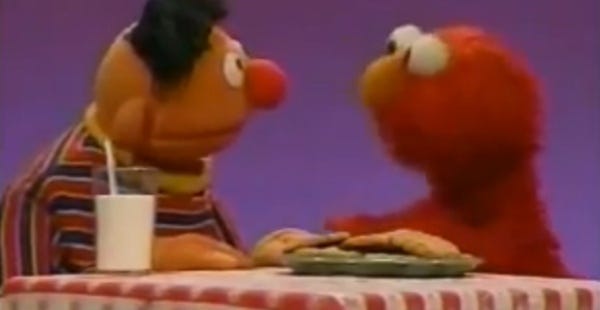Unlearning To Share: The Industry's Hatred Of Generosity
Lend Me Your Ear... Wait, No!
There's a saying, quoted by the late socialist and storyteller Utah Phillips, that goes:
"Freedom is something you assume, then you wait for someone to try to take it away. The degree to which you resist is the degree to which you are free."
In light of various confusions and controversies in the wake of the Xbox One announcement, and the many other matters similar to it in this industry, do we really have any notion of freedom in game ownership, and our right to share?
(This isn't some grand essay, nor is it a definitively researched piece on the legal side of the matter. This is rambling thoughts, so treat it in that manner. And throw back your rambling thoughts in return.)
A friend of mine has two kids. One's nearly three, the other's about six months old. The toddler is in the process of learning the concept of sharing, and is currently stuck midway through this understanding. He has been told that sharing is good, and encouraged to share his toys with his little sister, and he wants to do this. So he offers a toy to the baby girl, who will gratefully take it. At which point he bursts into tears, distraught that he no longer has the toy.
But he's going to figure it out. He's eventually going to learn that sharing can mean not having that thing for the duration, and he's going to figure out ways to be okay with that. He'll recognise the intricacies of sharing, that it's something that can be received as well as given, that it's not pure altruism but a way of engaging with those around him in a mutually beneficial society. With the guidance of his parents, and his own developing experience, he'll learn to share.
And then the entertainment industry will attempt to undo all that.
There has been much consternation, and certainly a large degree of confusion, about the new policies the Xbox One will impose on gamers. It seems that if you lend a copy of a game to a friend, and they want to play it on their own profile, they'll have to pay a fee equivalent to the price of the game to be able to do so. If it is the case, it's bewildering. It's the end of something as ordinary and friendly as letting a buddy come over and borrow a couple of games from your shelf.
But there never has been freedom for games. The copyright messages printed on your average videogame impose draconian and unsocial instructions from a futuristic evil oppressive regime, that somehow exist in our era. Grab a box and look at the tiny print on the back, and there's a good chance you'll read:
"Unauthorised copying, lending, or resale under any scheme strictly prohibited."
I nearly broke my eyeballs trying to read that on the rear-side of a copy of World In Conflict that happened to be near by. A copy I've now learned I do not have permission to lend to a friend. (It's often said this is to deter library-style lending schemes, but let's be sensible here - the language is deliberately ambiguous.)
Lending, or as I like to call it - sharing - is loathed by copyright holders. A borrowed game is an unsold game, I imagine they probably say to each other without evidence for such an obviously nonsensical claim. It is only the natural consequence of things for this new console to make sharing so extraordinarily difficult or expensive.
And yes, that oh-so-often given response is absolutely true.
"But what about Steam? YOU HYPOCRITE!"
Steam, and so many other digital distribution platforms, are abhorrent when it comes to notions of sharing. Our willing allowing of the PC gaming market to become unshareable makes us all complicit in this erosion of freedom. We went from plastic circles with idiotic impositions of limited installs, to pure data and not even the option for those few installs. And we thanked them for the convenience.
To return to Phillips' quote, we did not resist at all.
There's definitely a difference between a tangible, physical object, and an ethereal collection of data downloaded to a hard drive. Quite what that difference amounts to really becomes a subject for philosophy, but most people would recognise that having a box in their hand gives them a greater sense of a right to share. Microsoft's purported decisions to make that impossible (the current line is that you'll be able to put that disc in the machine at a friend's house, but you'll have to log in with your account for it to work) bring the message rather starkly home. It took the plastic box for the affront to be properly felt, despite our having allowed it to happen for many years.
We resisted to no degree, and thus we have no degree of freedom. We simply do not own our games. We don't own them when we download them, and we don't own them when we buy them in a box. We are, at the very best, renting them from the publisher at a hefty price. They reserve the right to take that notion of ownership away from us at any point, whether it's by turning off vital servers to have a game run, or blocking accounts into which the games are tied. Right now, if you do something to offend Valve's myriad mysterious and opaque rules, they can remove your access to your entire account, no matter how many games it may contain. While all of us who've never experienced this tend to feel like their Steam Library is their own, talk to someone who's had it taken away to get an idea just how much it isn't.
We've seen so very many people who have said something an EA moderator didn't like on a forum, and discovered they're no longer able to play the games they paid for via Origin.
When these things happen, we object. Often it takes a site like RPS to feature the story before anything is done (and sometimes just our sniffing around the story to see things magically fixed before we can even report it). We hear about its happening to someone else, get a bit worried about it, and then carry on.
So what am I suggesting? That we should all boycott these systems? But then we'd not have access to so many games we want to play. And that's true, and I'm swayed by it. But I'm also acutely aware that the degree to which I'm resisting is defining the degree to which I'm free. And I don't feel very free.
There are other options too, of course. Some developers will allow you to give Steam codes to friends, to share the game. There are DRM-free digital distribution channels that allow you to "share" products you've bought without resistance. Obviously things are a little more problematic here. My friend's young son would have no issues with sharing if it meant creating an identical duplication of the toy for his baby sister to have, while he continued playing with the original. While there is a very good, strong argument to be made for copying to be understood as sharing, it does remove the factor of not having the original while it's borrowed by another.
But slightly frustratingly, there's a simple answer out there, already being used by a huge and notoriously vicious sector of the copyright industry: books. Kindles feature the ability to "lend" books. It's suspended in your own account while it's borrowed, and returns when your chum is finished with it. It simulates a physical book, which short of laborious scanning or photocopying, is absent when borrowed by a friend. And it's a system people tend to be very happy with.
It's a system that absolutely should be featured on Steam, Origin, UPlay, etc etc. And it's a system we're very unlikely to see, until people start making it clear they're demanding it in huge enough numbers. Because right now the publishers much prefer the current setup: everyone has to buy their own copy.
My dad and I both have Steam accounts. Sometimes after I've finished a game I realise how much he'd enjoy it. Right now, if he's to play it he's going to have to buy it himself, or I'll buy it for him. But that's ridiculous! I'm done with it. I bought it, played it, and now I'm done with it. It's his turn to have a go on the copy I bought. Why on Earth have I never resisted for the freedom to of course be able to divert my copy of a game from my account to his? No copy is lost, no unauthorised duplication has taken place. I've simply done the thing I always had before, when I'd finished with a copy of a game on my 360, PS2, Xbox, N64, DS, Atari... I would have shared.
The Xbox One, with all its creepy Kinect-spying, TV interaction weirdness for the seventeen people who still ever watch TV as it's broadcast, and dog-based shooters serves a useful purpose. It takes the industry's fervent ambition to prevent the natural, beautiful human desire to share to a clearer, more immediately offensive place. It highlights the freedom we've already given up. And perhaps it will shake us enough to start resisting at last.














